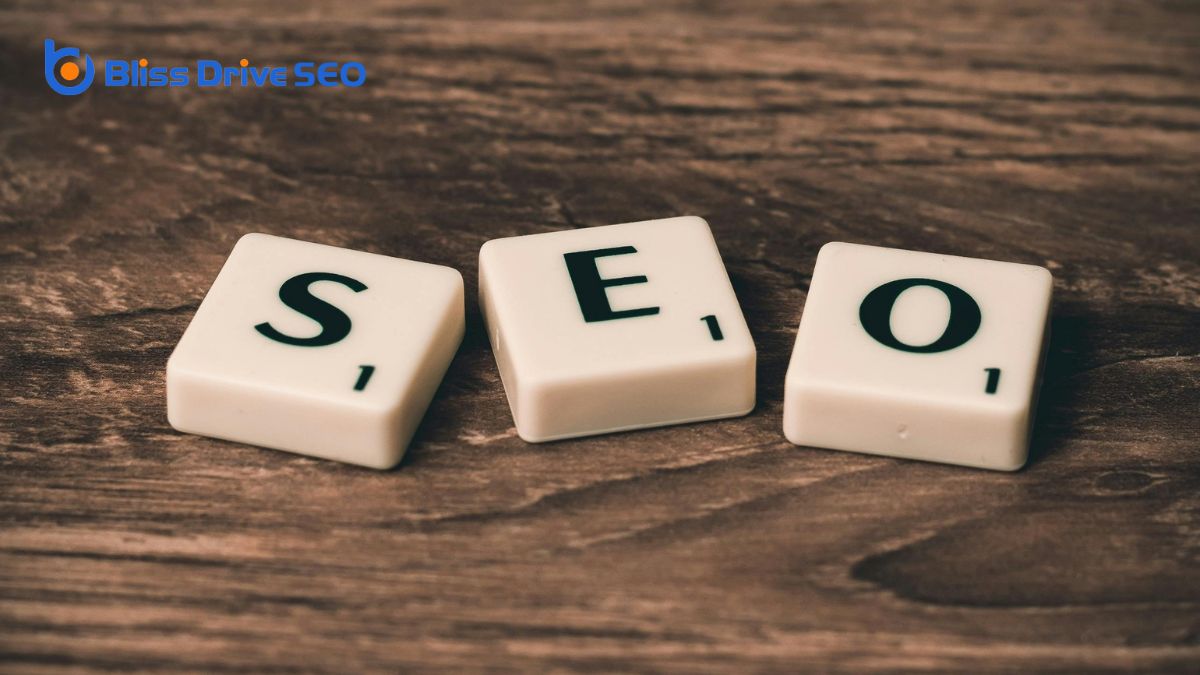Digital Marketing Services
Learn More About Us

Optimizing your ecommerce site's crawl budget is essential for boosting organic visibility and rankingsThe position at which a website appears in the SERP.. By ensuring search engine bots efficiently index your most crucial pages, you enhance your chances of reaching potential customers. Factors like site speed and structured data influence how much of your site gets crawled, driving quicker and more precise indexingThe process of adding web pages into a search engine's database.. Better-crawled pages improve SEO outcomes, attract more traffic, and ultimately increase conversions and revenue. Monitoring with tools like Google Search ConsoleA tool by Google that helps monitor and maintain your site's presence in search results. helps you fine-tune this process. Want to explore further? There's much more to uncover about optimizing the crawl budget for maximum impact.
Understanding crawl allocation is basic for e-commerce sites that aim to optimize their search engine performance. Your crawl allocation determines how many pages search engine bots will crawl on your website. For ecommerce sites, this is essential because it directly impacts the indexing and visibility of your important pages, like your product pages.
Factors like site speed and technical SEOOptimizing the server and website structure to improve search engine crawling and indexing. play a significant role in optimizing your crawl allocation. If your site is slow, bots mightn't crawl as many pages. A well-structured internal linkingLinks that connect different pages on the same website. structure can guide bots to your most important pages, making sure they get indexed promptly. Utilizing Google Search Console can help you monitor and manage your crawl rate limit, ensuring you're making the most out of your crawl allocation.
Content updates and page popularity also influence how bots interact with your site. Regularly updating content can attract bots to crawl your site more frequently. However, unoptimized crawl allocation can leadA potential customer referred by an affiliate who has shown interest in the product or service but h... to slow indexation and missing content, which can hurt your site's organic trafficVisitors who come to a website through unpaid search engine results..

Optimizing your ecommerce site's crawl budget is crucial for SEO because it enhances page indexing and improves organic visibility. By efficiently allocating resources, you guarantee that important product pages get indexed quickly and accurately. This not only boosts your search engine rankings but also drives more organic traffic to your site.
Getting your ecommerce site's crucial pages indexed efficiently can make a world of difference in your SEO efforts. By focusing on crawl budget optimization, you guarantee that search engines are crawlingThe process by which search engines discover new and updated web pages to index. and indexing your most vital product and category pages. This is crucial for eCommerce SEO because it helps customers find the products they need quickly.
Following SEO best practices for crawl budget optimization leads to improved page indexing, which directly contributes to enhanced SEO. When search engines prioritize your key pages, new products, promotions, and content updates get indexed faster. This swift indexation is significant for staying competitive and meeting market demands.
Enhanced page indexing through crawl budget optimization means your ecommerce site is more likely to show up in relevant search results, driving more organic traffic your way. Moreover, an optimized crawl budget leads to a better user experience. When relevant products are easily discoverable in search results, customers have a smoother shopping journey.
Ultimately, this focus on important pages can boost your organic traffic and conversions, notably increasing your revenue and ROI. So, don't underestimate the power of efficient page indexing in your eCommerce SEO strategy.
For ecommerce sites, optimizing the crawl budget is important for boosting organic visibility. When you maximize efficient crawl budget utilization, search engine bots can crawl and index important product pages and category pages more effectively. This means the right pages get noticed by search engines, helping your site rank higher in search results.
By focusing your crawl budget on key landing pages and high-performing product pages, you can attract more organic traffic. This increased visibility can lead to more potential conversions, directly impacting your revenue.
For ecommerce sites, improved organic visibility is a game-changer; it guarantees that your products are seen by the right audience at the right time.
An optimized crawl budget also means faster indexing of new products and updates. When search engines quickly recognize and index these changes, your ecommerce site's search engine performance gets a significant boost. This leads to better overall SEO outcomes, driving increased visibility and revenue opportunities.
Prioritizing important pages for crawling ensures that your most valuable content is always up-to-date and easily accessible to search engines. This strategic approach to optimizing the crawl budget will ultimately enhance your site's organic visibility, making it an integral component of your SEO strategy.
When it comes to managing your ecommerce site's SEO, effectively allocating resources through crawl budget optimization is crucial. Optimizing your crawl budget is significant because it guarantees search engine bots focus on crawling and indexing your most valuable pages. This effective resource allocation is a cornerstone of the best SEO practices, directly impacting your site's rankings and visibility.
By focusing your crawl demand on high-performing landing pages, you can greatly enhance your site's SEO performance. Proper crawl budget management means that search engines will spend more time on content optimizationImproving content to enhance its performance and effectiveness. for pages that matter most, driving organic traffic and increasing conversions.
Here's why effective resource allocation in crawl budget optimization is vital for your ecommerce site:
To get started, analyze your crawl report and follow a solid SEO guide. This will help you identify areas for improvement and ensure your resources are allocated effectively, ultimately enhancing your site's SEO performance.

Understanding the factors impacting your crawl budget is crucial for optimizing your ecommerce site's search engine performance. One major factor is site size; larger eCommerce sites with extensive product catalogs require more resources for crawling.
Page load speed is another critical element—slower pages can limit how much of your site search engine bots can crawl within a given timeframe. Additionally, the frequency of content updates influences your crawl budget; frequently updated sites may demand more frequent crawls.
Crawl rate and crawl demand are also crucial. Crawl rate refers to how often bots visit your site, while crawl demand indicates the necessity of those visits based on the changes and updates you make. For instance, site migrations, new product launches, and URL structure changes can increase crawl demand, impacting how resources are allocated.
Effectively managing your crawl budget ensures important product pages are crawled and indexed promptly, enhancing your site's visibility.
Lastly, prioritizing high-traffic and revenue-generating pages can greatly improve your organic traffic. By understanding these factors, you can make more informed decisions that optimize your crawl budget, leading to better search engine performance and conversions for your eCommerce site.
Optimizing your crawl budget for an ecommerce site requires implementing targeted strategies that enhance efficiency and effectiveness. By focusing on key areas, you can guarantee that search engine bots crawl your important pages more frequently, improving your site's visibility and user experience.
Start by enhancing your website speed and server response time, as faster-loading pages make better use of your crawl budget. Utilize the robots.txtA file that tells search engine crawlers which pages or files they can or cannot request from your s... file to guide bots in crawling your essential pages and avoiding less important ones. Monitor and address redirect chains and HTTP errors promptly to prevent bots from wasting time on problematic URLs.
Here are some strategies to optimize your crawl budget:
Efficient crawl budget management leads to better indexing, higher search engine rankings, and an enhanced user experience on your ecommerce site. By implementing these strategies, you'll make the most of your crawl budget.
To optimize your crawl budget, start by removing unnecessary pages and detecting index bloat.
Use tools to identify and eliminate content that's redundant or irrelevant.
This streamlines your site, ensuring search engines focus on high-quality, optimized content.
Streamline your ecommerce site's crawl budget by removing unnecessary pages and optimizing search engines' focus on your most valuable content. By managing content indexing efficiently, you help search engine bots prioritize the most crucial content, leading to improved visibility and higher search engine rankings.
To optimize your crawl budget, start by identifying and eliminating low-performing pages and duplicate pages. Doing so prevents crawl budget wastage on non-essential content and guarantees that your high-quality content gets the attention it deserves. Here are some steps to help you streamline content effectively:

After removing unnecessary pages to streamline your ecommerce site's crawl budget, it's important to tackle the issue of index bloat. Index bloat happens when search engines index excessive or redundant content on your site, which can significantly impact your crawl budget efficiency.
Tools like Google Search Console are invaluable for detecting index bloat. They highlight URLs with duplicate or non-essential content, giving you a clear picture of what's bogging down your index.
Managing index bloat involves removing or consolidating these redundant pages. By doing so, you prevent search engines from wasting crawl budget on non-essential pages, ensuring they focus on your most valuable content. This not only optimizes crawl budget allocationThe process of distributing a budget across different campaigns and ad groups. but also enhances the overall performance of your ecommerce site in search results.
In practical terms, when you detect index bloat and take steps to address it, you're making sure that search engines prioritize important pages. This leads to better indexing of your high-value products and content, ultimately driving more relevant traffic and improving user experience.
When it comes to optimizing your ecommerce site's crawl budget, leveraging the appropriate tools and resources is essential. By using robust tools like Google Search Console, Screaming Frog, and SEMrush, you can gain valuable insights into how search engines crawl your site and identify opportunities to enhance your crawl budget.
Log file analysis tools like Logz.io help you understand crawl patterns and prioritize important pages. Tools such as Moz's Site Crawl and DeepCrawl can be used to perform thorough site audits and optimize your crawl budget.
Additionally, Google's Crawl Budget Guide offers guidelines to help you manage your crawl budget effectively. By consulting with technical SEO specialists and participating in industry forums, you can stay updated with the latest strategies and best practices.
Optimizing your ecommerce site's crawl budget isn't a one-time task. It requires continuous monitoring and adjustment using the right combination of tools and resources to ensure your site remains visible and competitive in search engine rankings.
A crawl budget is essential because it determines how many of your site's pages search engines will crawl and index. Efficient management helps boost your site's visibility, improves search rankings, and enhances user experience by ensuring smoother navigation.
You'll optimize the crawl budget by prioritizing high-traffic landing pages, removing duplicates, utilizing internal linking, setting crawl limits, and optimizing server response times. Regularly monitor and refine using tools like Google Search Console and server log analysis.
Crawling is important in SEO because it lets search engines discover and index your site's pages. This boosts your site's visibility, rankings, and organic traffic. Ensuring efficient crawling helps search engines understand and prioritize your content effectively.
Crawl budget waste happens when search engine bots spend time on low-value or irrelevant pages. This neglects your vital product pages, impacting their indexing and search rankings. Focus on essential content to improve visibility and traffic.
Optimizing your crawl budget is essential for ensuring your eCommerce site ranks well in search engines. By understanding what affects your crawl budget and implementing effective strategies, you'll make sure search engines index your most important pages. Use the right tools and resources to manage content indexing efficiently. Doing so will boost your site's visibility and drive more organic traffic. Remember, a well-optimized site means better user experience and higher conversionThe completion of a desired action by a referred user, such as making a purchase or filling out a fo... rates.
